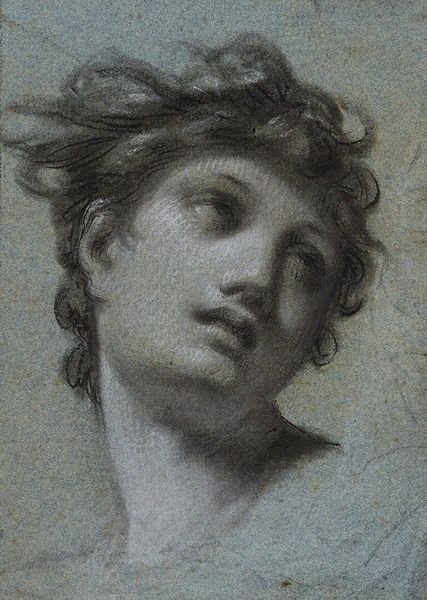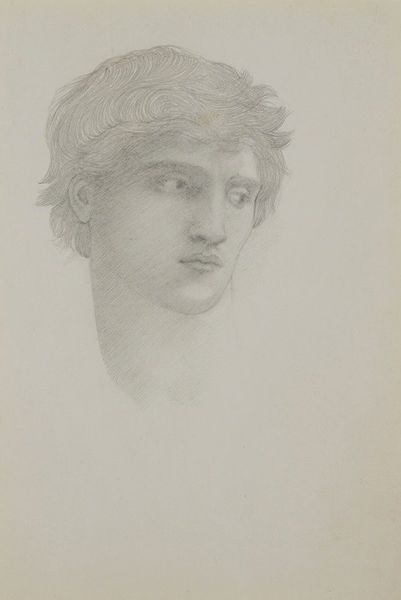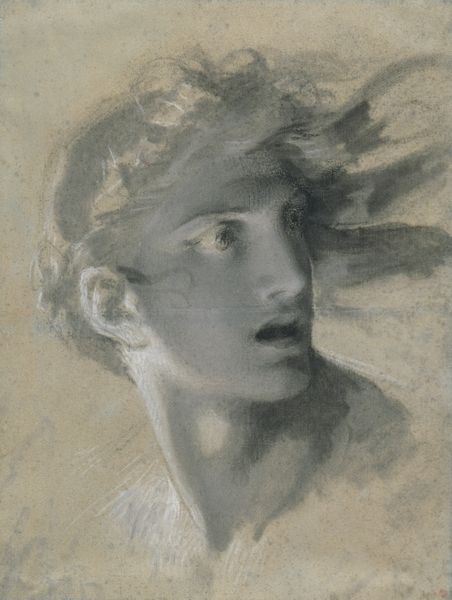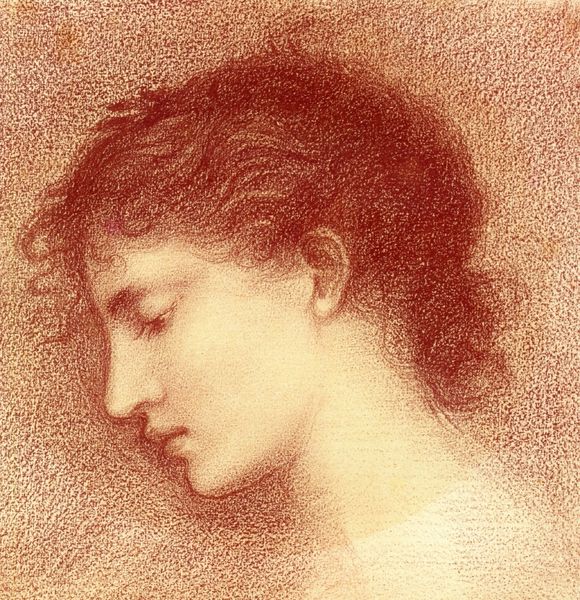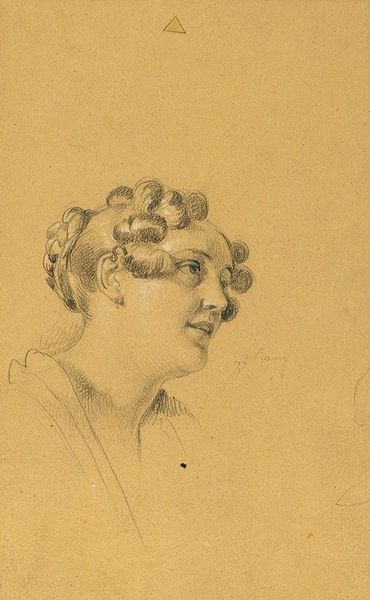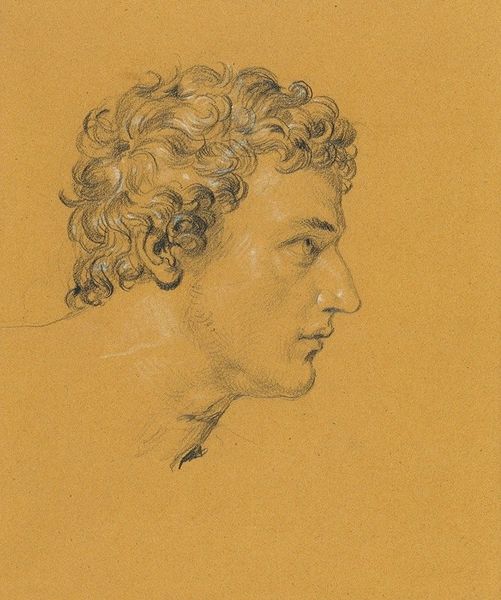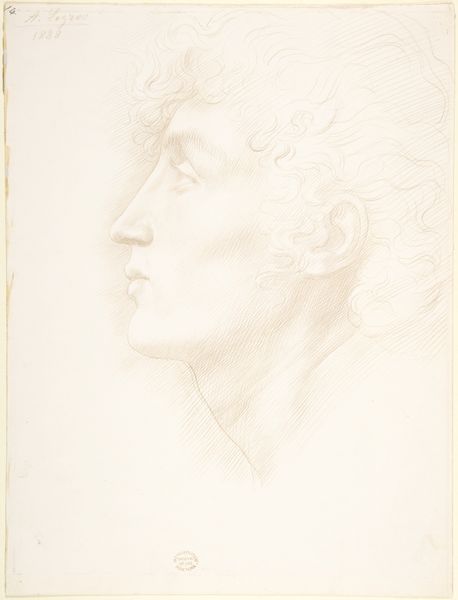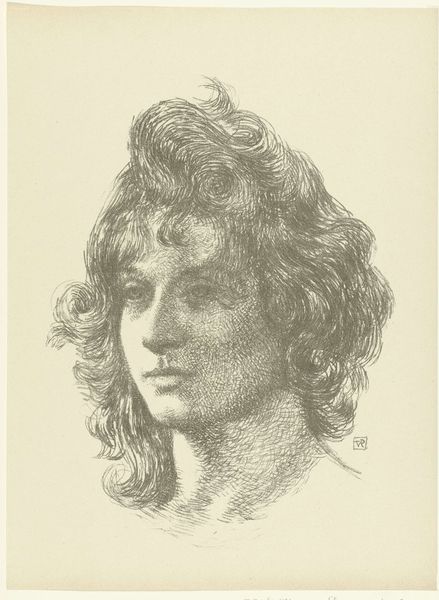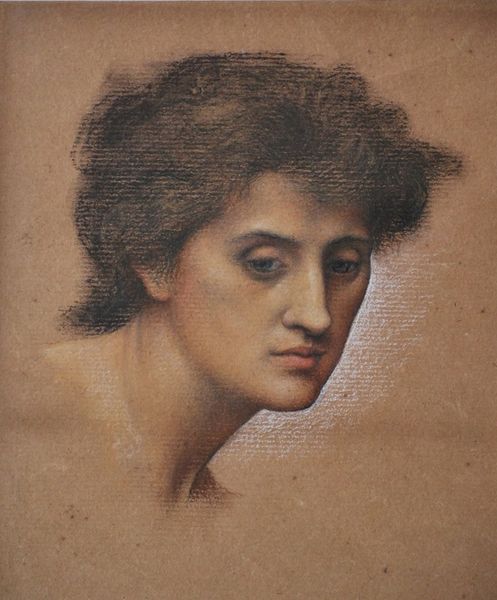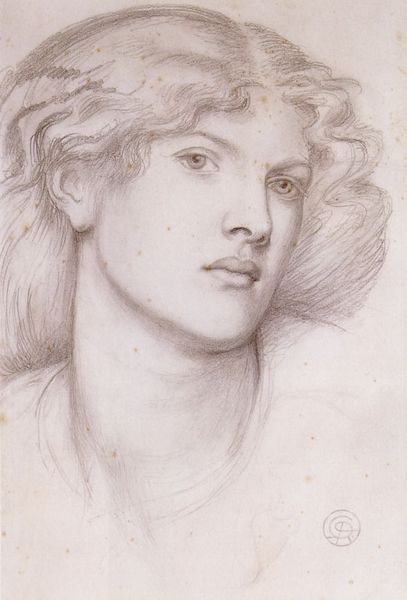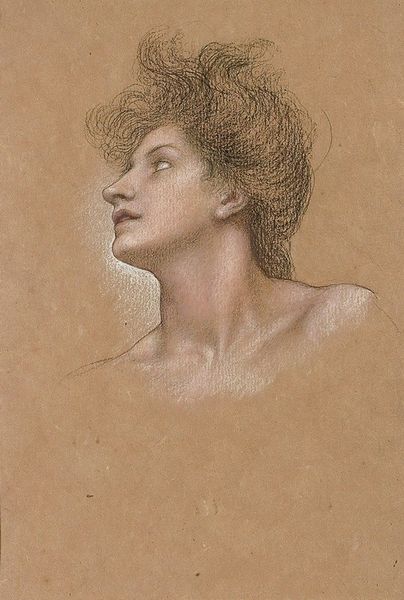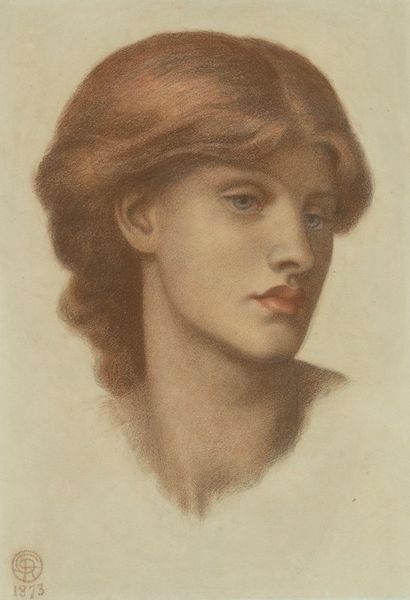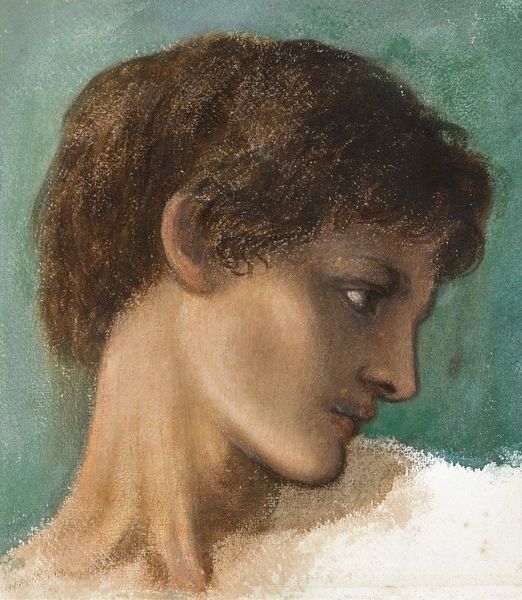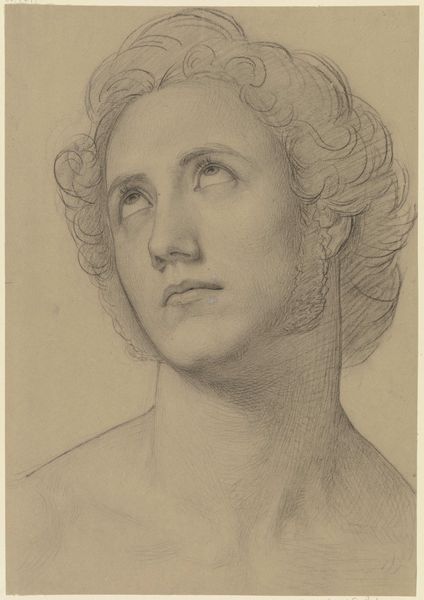
Study of a male head in profile, for Perseus in The Call of Perseus
0:00
0:00
drawing, pencil
#
portrait
#
drawing
#
facial expression drawing
#
figuration
#
form
#
portrait reference
#
portrait head and shoulder
#
pencil
#
line
#
animal drawing portrait
#
portrait drawing
#
facial study
#
facial portrait
#
pre-raphaelites
#
portrait art
#
fine art portrait
#
digital portrait
Copyright: Public Domain: Artvee
Curator: This is a study by Edward Burne-Jones, titled “Study of a male head in profile, for Perseus in The Call of Perseus.” It's rendered in pencil. Editor: There's something striking about its stillness. It almost feels like I am observing a figure in ancient Roman artwork. It certainly speaks to some inner contemplation. Curator: Indeed. It's a preparatory sketch related to a larger series of paintings Burne-Jones created depicting the Perseus myth. This piece reveals the academic background of the artist and the study of ideal beauty pursued by many artists within the Pre-Raphaelite movement. Editor: The Pre-Raphaelites were really fascinated by symbols of classical heroism, weren't they? Was this image also meant to convey the hero? Curator: Certainly, but in a more subtle way. The overall composition speaks to classical forms of male beauty with some melancholic nuance. When seen as Perseus, the strong profile certainly suggests determination and strength. The sketch would have helped Burne-Jones consider the psychological depth needed to portray the mythological figure. Editor: What I find most striking is the tension between the sharp profile and the soft shading. I’m immediately reminded of similar representations in Renaissance drawings. Do you feel it’s meant to evoke those references deliberately? Curator: Absolutely. Burne-Jones looked to the Renaissance masters and classical forms for inspiration. And this is clearly a reference, meant to situate the image, and thus Perseus, in that tradition. Editor: Looking at this preparatory study and considering Burne-Jones's larger ambitions for his Perseus cycle, it seems the artist uses classical references to elevate and make acceptable male homoerotic desires within Victorian culture. Curator: I agree; it allows the viewers to enjoy classical art's beauty under the pretext of artistic exploration. Thank you for pointing out some fascinating insights. Editor: My pleasure; hopefully, our visitors feel compelled to come and make their own observations, too.
Comments
No comments
Be the first to comment and join the conversation on the ultimate creative platform.
